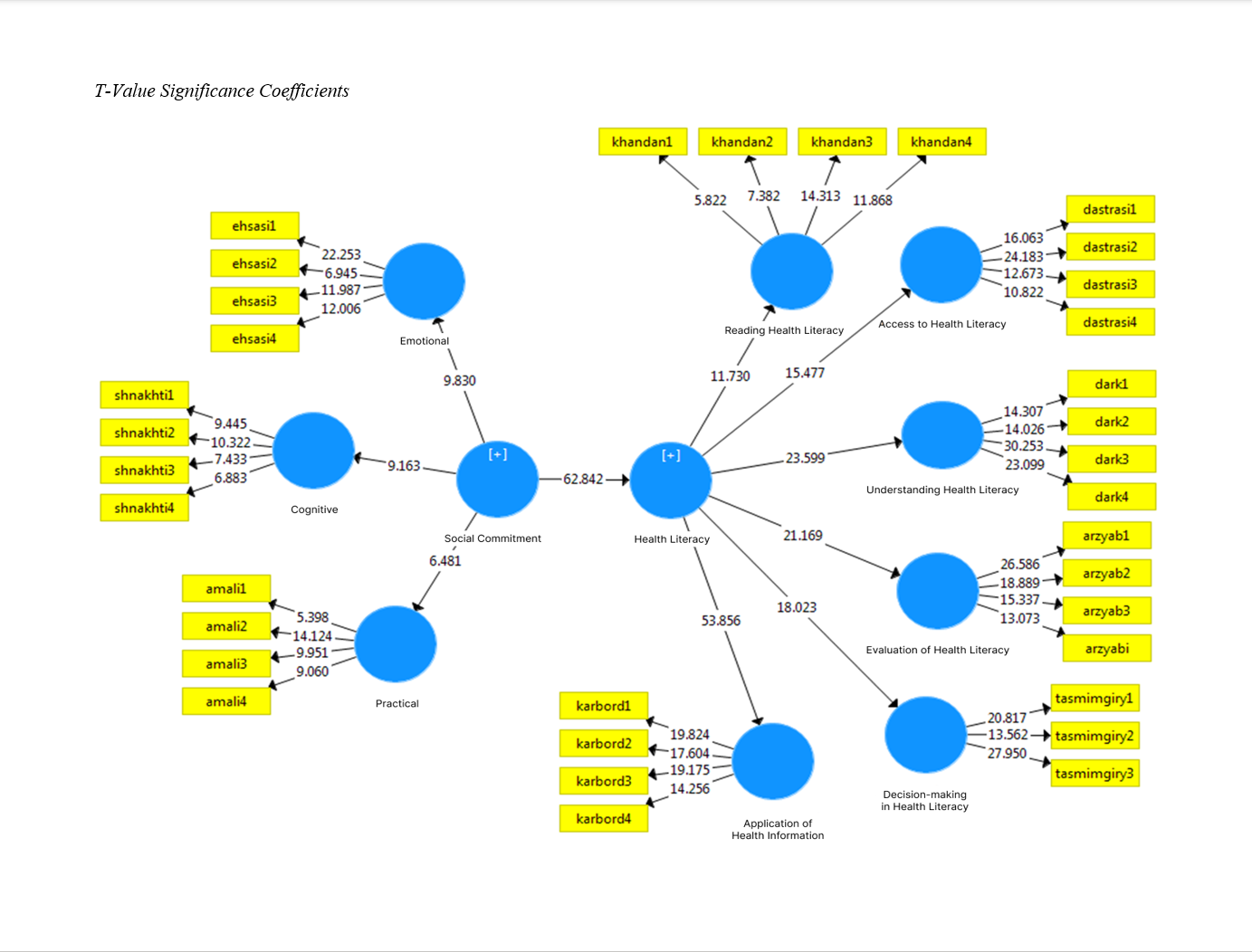A Sociological Examination of the Relationship Between Social Commitment and Health Literacy Among Blood Donation Participants in Tehran
Keywords:
Individual Skill, Sociological, Health Literacy, Social CommitmentAbstract
The present study aims to sociologically examine the relationship between social commitment and health literacy among blood donation participants in Tehran. This study employed a descriptive-survey and correlational research design. The statistical population included all individuals aged 20 to 60 in Tehran in 2024, from whom 323 participants were selected through convenience sampling. Data collection instruments consisted of two standardized questionnaires: the health literacy questionnaire by Wahl et al. (2021) and the social commitment questionnaire by Singhapakdi (1996), both demonstrating a Cronbach's alpha greater than 0.70. Data were analyzed using SPSS v16 and Smart PLS software, employing Pearson correlation coefficient and stepwise regression tests. The main hypothesis, stating that "there is a positive and significant relationship between social commitment and health literacy among blood donation participants," was confirmed with a coefficient of determination of 0.503. Hypotheses 1 through 8 clearly confirmed that social commitment in its emotional, cognitive, and practical dimensions plays a significant role in enhancing individuals' ability to read, access, comprehend, evaluate, make decisions, and utilize health information. These findings hold considerable theoretical and practical significance. Theoretically, they confirm that health literacy is not merely an individual skill but is also influenced by social and cultural factors. Practically, the results indicate that improving health literacy requires a focus on strengthening social commitment within society. This can be achieved through educational, social, and cultural programs aimed at increasing individuals' awareness of social responsibilities and encouraging active community participation.
Downloads

Downloads
Additional Files
Published
Submitted
Revised
Accepted
License
Copyright (c) 2025 Aram Ranjbaran (Author); Hasanreza Yosofvand (Corresponding Author); Taliee khademian (Author)

This work is licensed under a Creative Commons Attribution-NonCommercial 4.0 International License.







